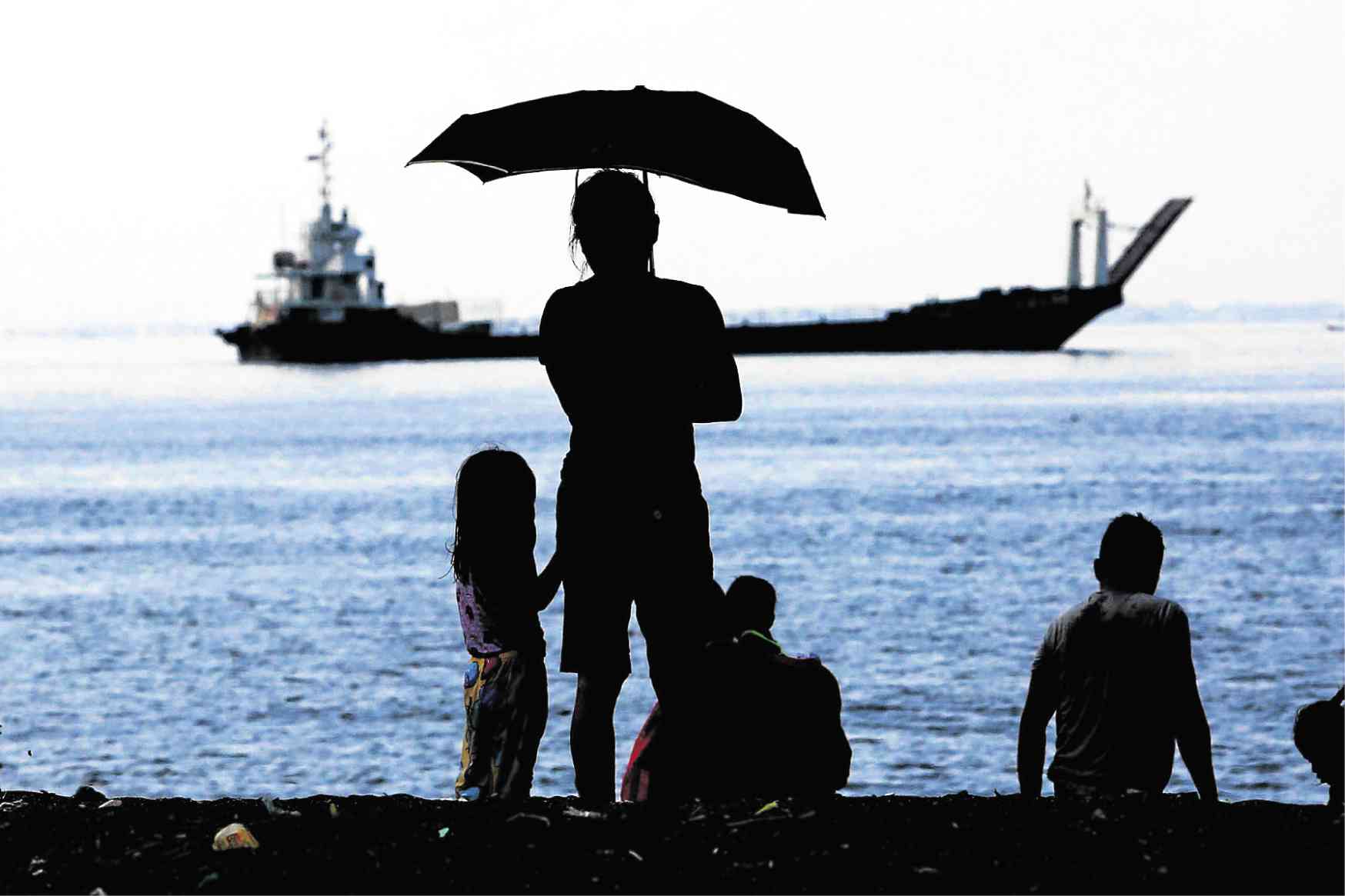
BAY WATCH A mother and her children relax by the side of the bay at Baseco Compound in Tondo, Manila, one of the areas targeted for clearing operations. —MARIANNE BERMUDEZ
MANILA, Philippines — Some 400 truckloads of silt and trash have already been removed from Manila Bay since the government kicked off its rehabilitation program in January, the Metropolitan Manila Development Authority (MMDA) said on Wednesday.
However, two crucial components of long-term rehabilitation — the relocation of informal settlers and installation of sewerage treatment plants — have yet to be completed.
A summary report from the MMDA’s Flood Control and Sewerage Management Office (FCSMO) said 3,018 cubic meters of trash had been collected since the rehabilitation started.
The MMDA is part of an interagency effort led by the Department of Environment and Natural Resources (DENR) to clean up the bay. Targeted areas include the shoreline of Manila Bay on Roxas Boulevard, Estero San Antonio de Abad, Tripa de Gallina, Padre Faura drainage main, Remedios drainage main and some drainage laterals, said FCSMO chief Balthazar Melgar.
Problem area
San Antonio, Padre Faura and Remedios, in particular, serve as catchment for much of the waste coming from Taft Avenue, which Melgar identified as a particular problem area.
“There are condominiums, restaurants and business establishments along that area that feed their untreated waste directly into the drainage,” he said. “If they would treat their waste first, it would go a long way into helping save the bay.”
With the cleanup completed, the DENR should be able to build sewerage treatment plants to clip pollution at the drainage laterals, he added.
Also part of the interagency cleanup efforts is the relocation of some 100,000 informal settler families living beside the bay, particularly at Baseco Compound in Tondo, Manila, as they contribute to pollution.